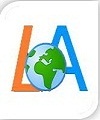Pengembangan Media (LKS) untuk Meningkatkan Hasil Belajar Siswa Sekolah Menengah Pertama (SMP) Kelas VIII Menggunakan Pendekatan Worked Examples
Abstract
Abstrak. Permasalahan dalam penelitian ini adalah sumber belajar yang digunakan guru dan siswa dalam proses pembelajaran yang tidak melibatkan siswa secara aktif dan belum memuat kegiatan yang membuat siswa untuk membangun pengetahuannya sendiri. Dalam proses pembelajaran guru dan siswa sudah menggunakan bahan ajar berupa buku paket, namun siswa jarang membawa buku paket tersebut ke sekolah akibatnya pada saat pembelajaran siswa hanya pasif mendengarkan penjelasan dari guru.Berdasarkan penjelasan tersebut tujuan penelitian ini menghasilkan produk berupa LKS berbasis pendekatan worked example dengan model 4D untuk siswa kelas VIII SMPN 1Bolo yang valid, praktis, dan efektif. Jenis penelitian yang digunakan adalah pengembangan atau Research and Development (R&D) dengan menggunakan model pengembangan 4-Dyaitu: tahap pendefinisian (define) menganalisis sumber belajar dan menganalisis literatur LKS, pada tahap perancangan (design) yang dilakukan yaitu merancang LKS,RPP, angket respon siswa, dan tes, dan pada tahap pengembangan (development) terdiri dari 3 tahap yaitu tahap validitas, praktikalitas, dan efektifitas. Subjek dari penelitian ini adalah kelas VIII SMPN 1 Bolo. Instrumen penelitian terdiri dari: lembar validasi LKS,RPP, angket respon siswa, dan tes. Teknik analisis data yang digunakan yaitu analisis validitas, analisis praktikalitas dan analisis efektivitas. Berdasarkan analisis hasil penelitian dihasilkan (1) LKS berbasis pendekatan penemuan worked example dengan model 4D sangat valid dari segi kelayakan isi, kelayakan penyajian, kelayakan bahasa dan kelayakan kegrafikan. (2) LKS berbasis pendekatan worked example dengan model 4D sangat praktis. (3) LKS berbasis pendekatan worked example dengan model 4D efektif dari segi ketuntasan klasikal dan angket respon positif siswa.
Abstract. The issue in this study is that the learning resources utilized by teachers and students in the learning process do not actively engage students and do not offer activities that allow them to create their own knowledge. Teachers and students have employed instructional materials in the form of textbooks in the learning process, but students rarely bring these textbooks to school, so students just passively listen to the teacher's explanation.. Based on this explanation, the goal of this study is to create a product for class VIII students at SMPN 1 Bolo in the form of worksheets based on a worked example approach with a 4D model that is valid, practical, and effective.Research and Development (R&D) employing a 4-D development model is the method used: the defining stage, analyzing learning resources, and analyzing LKS literature; the design stage, which includes designing LKS, lesson plans, student response questionnaires, and tests; and the development stage, which includes three stages: validity, practicality, and effectiveness. The participants in this study were from class VIII SMPN 1 Bolo. LKS validation sheet, lesson plans, student response surveys, and assessments were the instrument of the study. The data analysis approaches were validity, practicality, and effectiveness analysis.The research analysis revealed are; (1) LKS based on the discovery approach worked example with a 4D model is very valid in terms of content feasibility, presentation feasibility, language feasibility and graphic feasibility, (2) Worksheet based on a worked example approach with a 4D model is very practical, (3) LKS based on the worked example approach with the 4D model is effective in terms of classical completeness and student positive response questionnaires.
Keywords
Full Text:
PDFReferences
Arikunto, S. 2008. Prosedur Penelitian Suatu Pendekatan Praktik. Jakarta: Rineka Karya.
Creswell, John W dan Plano Clark. 2011. Designing and Conducting Mixed Methods Reseach: Second Edition. United States of America: Sage Publications, Inc.
Hillen, N. v., van Gog, T., & Gruwel, S. B. (2012).Effect of worked examples inprimary school mathematics curriculum.Interactive Learning Environments, 20 (1), 89-99.
Retnowati, E., Ayres, P., & Sweller, J. (2010). Worked example effects in individual and group work setting. Educational Psychology, 30(3), 349-367.
Suherman, E. (2003). Strategi pembelajaran matematika kontemporer.Bandung:JICA.
Suyitno, A. (2004). Dasar-dasar dan proses pembelajaran matematika1.Semarang: UNNES Publisher.
Retnowati, E., Sugiman, & Murdanu. (2015).Efektifitas goal-free problemsdalam pembelajaran matematika kolaboratif ditinjau dari muatan kognitifdan kemampuan transfer pengetahuan. UniversitasNegeriYogyakarta,Yogyakarta.
Thiagarajan, S. Semmel, D.S & Semmel, M.I. 1974. Instructional Developmentfor Training Teachers of Exceptional Children: A sourcebook. Indiana: Indiana University.
Trianto(2009).Mendesain Model Pembelajaran Inovatif Progresif.Surabaya:Kencana
Jurnal
Van Gog, T., & Kester, L. (2012). A test of the testing effect: acquiring problem solving skills from worked examples. Cognitive Science, 1532-1541. DOI10.1111/cogs.12002
Atkinson, R. K., Derry, S. J., Renkl, A., & Wortham, D. (2000). Learning fromexample: Instructional principles from worked examples research. Review of Educational Research, 70(2), 181-214. DOI: 10.3101/00346543070002181.
DOI: https://doi.org/10.31764/telaah.v7i2.10484
Refbacks
- There are currently no refbacks.
_________________________________________________________
Jurnal Ilmiah Telaah
ISSN (Online) 2620-6226 | ISSN (Print) 2477-2429
Email: [email protected]
Tel / fax : (0370)-633723 / (0370)-641906

This work is licensed under a Creative Commons Attribution-ShareAlike 4.0 International License.








